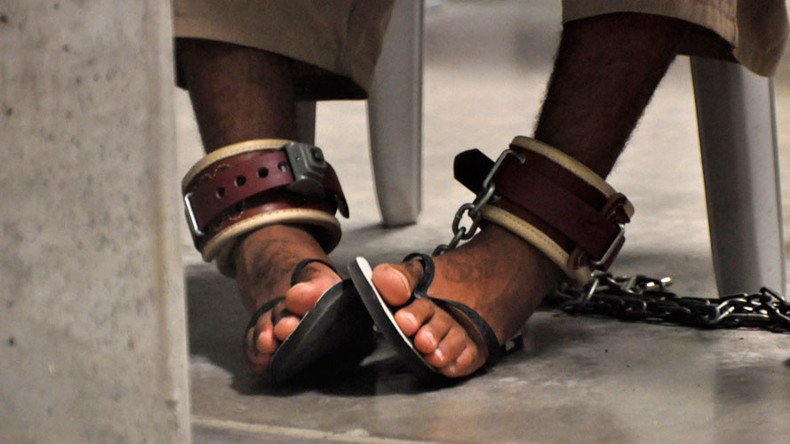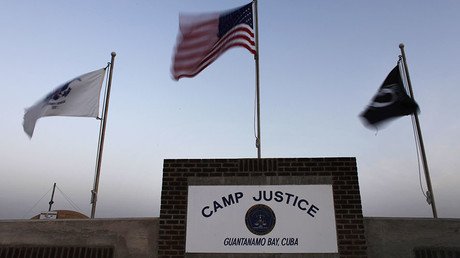’Europe may provide only justice he ever sees’: Gitmo detainee sue CIA interrogation masterminds

Lawyers for a Guantanamo Bay detainee are suing the creators of harsh interrogation techniques used by the US against terror suspects in a push for data to be revealed to a Polish investigation team into a secret CIA prison in that country.
The lawsuit, which was filed in federal court in Washington state on May 22, was announced by international human rights group Reprieve on Wednesday.
The suit revolves around the torture of inmate Abu Zubaydah during his time at a secret CIA interrogation facility in Stare Kiejkuty in Poland between December 2002 and September 2003.
The lawsuit names James Elmer Mitchell and John "Bruce" Jessen as defendants over their involvement in the interrogation program and presence at the site during that period.
The lawyers believe they the duo have information which can be useful to the probe by Polish prosecutors investigating if Poland facilitated the creation and activities of the Stare Kiejkuty “black site.”
The suit refers to the US Discovery Law that “can allow the American courts to assist foreign governments to prosecute torturers, even if the US executive branch refuses to do so,” the Reprieve statement read.
“How absurd that our only judicial recourse against American torturers is to help foreign governments in their inquiries. For Abu Zubaydah, still held without charge by the US after unimaginable suffering, Europe may provide the only justice he ever sees,” attorney Shelby Sullivan-Bennis said.
Zubaydah is a Palestinian born in Saudi Arabia, who was detained in Pakistan in 2002 on suspicion of being an al-Qaeda operative.
He remains behind bars without charge since then, being at held in several CIA ‘black sites’ before being transferred to the Guantanamo Bay facility in Cuba in 2006.
Zubaydah was water boarded on 83 occasions, according to a 2005 Justice Department legal memo. He was further subjected to sleep deprivation, confinement in small spaces and stress positions, and also lost an eye while in detention.
Mitchell and Jessen’s attorney told AP on the phone that he was aware of the lawsuit but declined to comment further.
Following the 9/11 attacks, Mitchell was tasked by the CIA to develop enhanced interrogation techniques to be used in the US war on terror. His company, Mitchell Jessen and Associates, with offices in Spokane and Virginia, received $81 million from the CIA before the contract was canceled in 2009.
A US Senate investigation in 2014 ruled that Mitchell and Jessen's techniques, which included waterboarding and sleep deprivation, were medically unsafe and failed to provide any useful intelligence.
According to AP, the US Justice Department has filed a statement with the court that “the proposed subpoenas and categories of information sought in this action raise important and complex questions regarding the United States' national security and foreign policy interests.”
The US government could file a statement of interest in the case by the end of June or advise that it won’t participate in the case, Justice Department officials said.
Mitchell and Jessen are also defendants in another lawsuit filed against them in 2015 by the attorneys of three inmates of CIA’s secret prisons.
A trial in that case is scheduled for September.
The American Civil Liberties Union, which initiated the legal action, says Suleiman Abdullah Salim, Mohamed Ahmed Ben Soud and Gul Rahman, who died in custody in a secret prison in Kabul, Afghanistan, were all subject to Mitchell and Jessen’s interrogation techniques.















